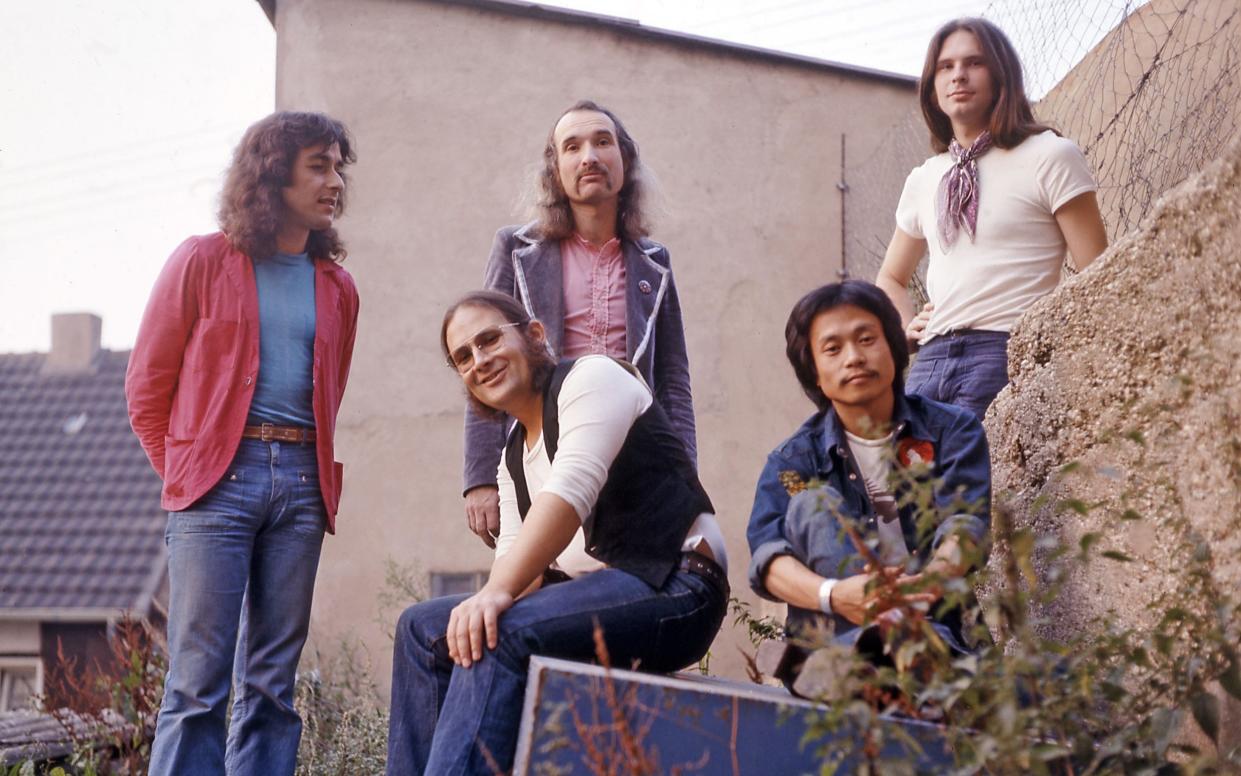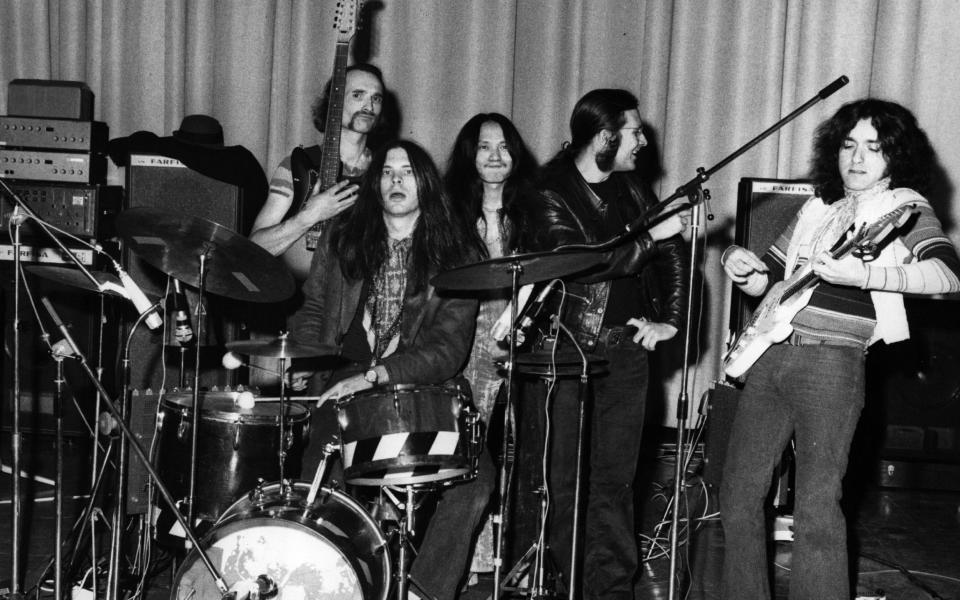Damo Suzuki, singer with the seminal German band Can – obituary

- Oops!Something went wrong.Please try again later.
- Oops!Something went wrong.Please try again later.
- Oops!Something went wrong.Please try again later.
- Oops!Something went wrong.Please try again later.
- Oops!Something went wrong.Please try again later.
Damo Suzuki, who has died aged 74, was a musician best known for the three years he spent as vocalist with Can, leading lights in the movement that became known as Krautrock; his tenure coincided with the band’s heyday, and he sang – and spoke, muttered, intoned, chanted and shrieked – on their three best albums, Tago Mago, Ege Bamyasi and Future Days.
Alongside Kraftwerk, Can were the most influential band to come out of early-1970s Germany, and numerous acts have acknowledged a debt to them, including David Bowie, Talking Heads, Joy Division, Radiohead and the Fall (one of whose songs is called I Am Damo Suzuki).
His free-form scat-inflected vocalising slotted in perfectly with Can’s working methods: they recorded extended improvisations, which the band’s bassist Holger Czukay then edited into tracks. “When something happens by accident,” Suzuki said, “it’s much more interesting than if you plan it. I like to live the whole of my life quite free like this.”
Kenji Suzuki was born in Oiso, near Yokohama in Japan, on January 16 1950; his father was an architect who died when the boy was five, and his mother struggled to bring up their four children.
Young Kenji was a wayward boy, he recalled – “Quite outlaw, but never with violence” – and was not academically inclined, preferring the company of his records, by the likes of The Beatles and the Rolling Stones and Aretha Franklin.
He left Japan aged 18 and embarked on the life of a drifter, initially in Sweden, staying with friends in a tiny village, then Ireland, along the way adopting the name “Damo” for reasons he could never remember. He busked around Europe for a while and fetched up in West Germany, where he joined the cast of Hair.
He joined Can in 1970 after Holger Czukay and the drummer Jaki Liebezeit saw him staging a performance of sorts outside a cafe in Munich – “screaming and sort of adoring the sun”, as they recalled. That evening he was up on stage with them.

Up to that point they had released one album, Monster Movie in 1969, with the troubled sculptor and former doo-wop singer Malcolm Mooney on vocals. Advised by his psychiatrist that the band’s way-out-there music was detrimental to his mental health, Mooney had returned to America, and Suzuki stepped in.
He survived an early attempt to deport him after he had been arrested for busking, thanks to a letter to the authorities from the composer Karlheinz Stockhausen, with whom Czukay had studied.
Suzuki sang on some tracks for Can’s Soundtracks album released that year, but the full fruits of his work with the band were first seen on the 1971 double album Tago Mago. By turns dreamy and nightmarish, it was both floor-filling and disorientating, Jaki Liebezeit’s drumming prefiguring every hip-hop record ever made.
They followed it with Ege Bamyasi (1972); it spawned the single Spoon, which improbably reached the German Top 10 after being used as the theme tune for a television thriller series – and saw Suzuki even being asked for his autograph on the streets, an experience he thoroughly disliked. His own favourite album was Future Days (1973), which explored a more ambient sound.
Having become a Jehovah’s Witness, he quit in 1973; as he recalled: “I really don’t like to belong anywhere.” Indeed, he did not remain a Jehovah’s Witness, though he described himself as a Christian of sorts.
He did various jobs – hotel work, office jobs and the like – then returned to music in the 1980s, forming the Damo Suzuki Band and Damo Suzuki’s Network. In 1998 he toured the US with his former Can bandmate, the guitarist Michael Karoli; one critic noted that his “inimitably impenetrable diction” remained intact. The same year, his solo album Vernissage was augmented by the drumming of Jaki Liebezeit.
In 2018 he published a memoir, I Am Damo Suzuki, and that year there was also a documentary, Energy. He toured constantly, usually playing unrehearsed with local musicians: “The youngest one was a 15-year-old guitarist from Glasgow,” he recalled. “The oldest was more than 80 years old, an Irish harp player.”
Damo Suzuki is survived by his wife, Elke Morsbach.
Damo Suzuki, born January 16 1950, died February 9 2024

